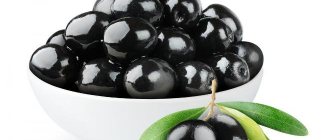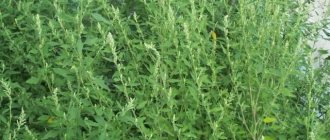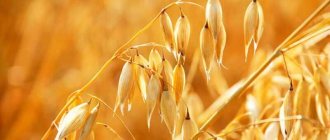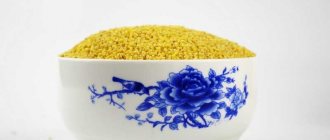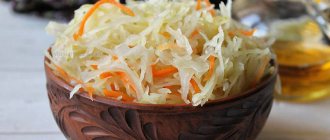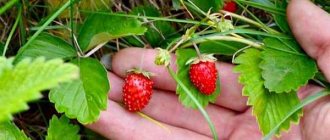Description of peanuts and the history of its origin
An annual plant from the legume family is usually grown in southern countries, with a hot and humid climate. According to historians, peanuts were widespread in South America long before its discovery by Columbus's expedition. The theory was confirmed by the discovery of an ancient Peruvian flowerpot, which in appearance resembled a groundnut and had decorations on the surface in the shape of a nut.
The Spaniards, who encountered the fruits, believed that such a product would allow them to easily cross the ocean in search of new countries. Returning from South America, they spread it to the European continent, where they began to use it at their own discretion; at one time they tried to replace cocoa beans with it. Later, Portuguese travelers brought it to African countries. The properties of peanuts in the ability to grow on impoverished lands where other cultivated plants do not grow, the high level of nutritional properties has led to the massive spread of peanuts.
North America's introduction to the fruit occurred during the slave trade - peanuts came from African countries, but local residents considered them food for the poor. In the 30s of the 15th century, groundnuts came to India, Macau and the Philippines. A little later it was brought to China - here it was assessed as a product that could solve the problem of hunger.
When studying legumes, botanists in the 18th century called them ground peas and recommended them for feeding pigs. The American War led to the use of peanuts as food for soldiers on both sides. American farmers for a long time refused to grow nuts on an industrial scale due to the difficulty without specialized equipment. Only since 1900 did plantations that had previously produced cotton become interested in the crop.
The American scientist George Washington Carver revolutionized the use of peanuts; he received more than 300 patents for his inventions in the form of:
- drinks, cosmetics, medicines;
- dyes, laundry soap, printing ink;
- insecticides.
His scientific research has shown that alternating the planting of legumes and cotton can enrich the soil with nitrogen. The massive destruction of cotton fields by pests was the first step in the industrial cultivation of the crop, and all farmers learned about the benefits of groundnuts. In the territory of the former Soviet Union, it was cultivated in the Transcaucasus, Central Asia and the southern regions of the European part of the country. At this time in the Russian Federation, cultivation of the crop takes place in an amateur form.
Potential harm and contraindications
Peanuts are the No. 1 allergen in the world. People with a true allergy to this product may experience severe symptoms, including anaphylactic shock and death. Usually, when allergy sufferers swallow even a small piece, they experience a skin rash, nausea, and swelling of the respiratory tract.
In addition to allergies, peanuts have a solid list of contraindications.
Table 2. Contraindications to eating peanuts
| Ban | Causes |
| Varicose veins, thrombophlebitis | Nuts increase blood clotting |
| Arthritis, gout and other inflammatory joint diseases | Due to the high amount of purines, peanuts increase the concentration of uric acid in the body |
| Excess weight | Lots of calories |
| Diseases of the pancreas, in particular pancreatitis | Some substances in the nuclei can suppress the activity of digestive enzymes, leading to indigestion and bloating. |
| Diarrhea | Peanut oil has a laxative effect |
You will also harm your body if you eat nuts in large quantities. Abuse of this product will lead to weight gain and disruption of the esophagus.
Expired or unripe raw peanuts cause severe food poisoning. For safety reasons, only consume nuts that are pale beige in color and have a pleasant bean aroma. Avoid kernels with stains, traces of mold, or a green tint.
What are peanuts good for: beneficial properties
The undoubted benefits of peanuts for the functioning of the body have been studied for a long time, experts came to the following conclusions:
- Amino acids – peanuts, like walnuts, normalize cholesterol levels and improve calcium absorption. The elements included in the composition are involved in regeneration processes at the cellular level, the production of hormonal and enzymatic units.
- Proteins – allow you to speed up the process of increasing muscle mass. Its beneficial properties are appreciated by bodybuilding supporters and everyone who keeps fit through training.
- Folic acid – regular consumption helps speed up cell renewal and normalize the performance of the liver.
- Nicotinic acid is responsible for the regeneration of the surface of nerve cells, preventing the formation of Alzheimer's pathology, age-related memory and perception disorders.
- Tocopherol - reduces the likelihood of developing pathologies in the cardiovascular region and cancer.
- Magnesium is responsible for energy levels and removes accumulated toxic elements from the body. Calcium and fluorine, combined with magnesium, reduce fragility and increase the hardness of bone tissue.
- Manganese – stabilizes lipid metabolism, the functionality of the central nervous system and parts of the brain. Peanut is prescribed to patients with dysfunction of memory and perception. Its use is recommended for patients with depression, neuroses, physical or mental exhaustion.
Tryptophan, which is contained in peanuts, is responsible for the production of serotonin, improves sleep quality, and prevents insomnia. It is recommended to be used by patients after complex illnesses who need accelerated recovery of the body.
Chemical composition of peanut kernels
The kernels and thin pink skin are rich in dietary fiber. The latter remove toxins from the human body, normalize intestinal motility, and serve as food for beneficial bacteria. 100 g of product covers 40% of the body's daily requirement for fiber.
In terms of vitamin and mineral composition, peanuts are superior to most types of nuts and legumes. The main substances present in the product are listed in the table below.
Table 1. Chemical composition of peanuts
| Substance | % of daily value (in 100 g) | Beneficial features |
| Vitamin B1 | 0.49 | Helps improve brain function and normalize metabolism |
| Vitamin B5 | 0.35 | Increases immunity by participating in the formation of protective antibodies, prevents heart disease |
| Vitamin B9 (folic acid) | 0.6 | Stimulates the production of red blood cells, stabilizes hormonal levels in women |
| Vitamin E | 0.67 | Protects the body from cancer, helps maintain youth and beauty |
| Vitamin H (biotin) | 0.8 | Reduces inflammatory processes on the skin, slows down the appearance of new wrinkles and hair loss |
| Vitamin PP | 0.94 | Reduces the level of “bad” cholesterol in the blood, supports normal functioning of the nervous system |
| Potassium | 0.26 | Normalizes heart rate and blood pressure, relieves swelling |
| Magnesium | 0.45 | Prevents heart disease, muscle cramps, depression and chronic fatigue |
| Silicon | 2.67 | Participates in the construction of bones, cartilage, teeth, nails |
| Phosphorus | 0.44 | Strengthens the musculoskeletal system, regulates the acid-base balance in the body, improves thinking abilities |
| Iron | 0.28 | Reduces the risk of anemia (anemia), thyroid diseases |
| Zinc | 0.27 | Accelerates the regeneration of cells and tissues, improves sexual function and sperm quality in men, participates in the absorption of certain vitamins |
In addition, P-coumaric acid and resverastrol were found in peanuts. These chemical compounds have antioxidant properties, that is, they protect the body from cancer.
Harm of peanuts to the body
Raw peanuts can cause serious harm to the body:
- Eating large volumes of fruits provokes rapid weight gain and problems with the functionality of the digestive organs and gastrointestinal tract. Another groundnut, chufa, has the same qualities.
- High risk of developing allergies - for people prone to spontaneous allergic reactions, it is enough to eat a few peanuts with husks to get angioedema. The culprits for the occurrence of non-standard reactions are considered to be aflatoxins, which are formed in the nut when storage technology is violated.
Contraindications to the use of raw peanuts include varicose veins, thrombophlebitis, and increased levels of platelet bodies. The active components of legumes can reduce blood circulation and increase blood density. Experts prohibit the consumption of nuts for pregnant and lactating women - there is a possibility of negative effects on the fetus and newborn.
Roasted peanuts can also be harmful:
- in case of diseases of the gastrointestinal tract, the irritation provoked by it can lead to exacerbation of chronic pathologies;
- The use of fruits by patients with diabetes mellitus and various types of allergic reactions is prohibited;
- Nuts fried in oil are dangerous because they contain carcinogens - it is healthier not to add them when preparing peanuts or to limit them to a minimum amount.
Doctors advise not to get carried away with nuts: in the form of peanut halva (made exclusively from peanut flour, without adding wheat), peanuts in coconut, raw or dried.
Peanuts: benefits and harms
Of course, peanuts are one of the highly nutritious foods, their benefits are great (as we have already seen), but can they also cause harm to the body?
How to eat peanuts without causing harm?
- First of all, it is important to consider that peanuts must be chewed thoroughly. So that ptyalin in saliva can start its digestion. Otherwise, poorly digested peanuts entering the large intestine will cause fermentation and gas formation. That’s why they so often use ready-made peanut butter or butter, the recipe for which is at the end of the article.
- Secondly, it should be borne in mind that peanuts are relatively poor in plant dietary fiber. Therefore, eating large quantities of fruits and whole grains without supplementation can be harmful. That is, it can cause constipation.
- Thirdly, peanuts can cause quite severe allergic reactions.
- Fourthly, if you introduce peanuts into your diet, you need to take into account its high calorie content. Peanuts are not an addition to the main food, but a completely independent product. Otherwise, there is a risk of obesity.
- Fifthly, it is preferable to eat peanuts without husks. However, remember that raw nuts have the maximum amount of benefits. At the same time, blanched or lightly roasted peanuts will also be very useful. But only without a significant amount of salt! Otherwise, all the benefits of peanuts for the heart and blood vessels are negated. Salted peanuts are unhealthy.
- Finally, you should not eat large quantities of ground nuts at one meal. Otherwise, it may lead to digestive problems. Because peanuts are hard to digest. Eating a handful of peanuts daily is enough.
How to choose peanuts so as not to harm yourself?
- Pay attention to the color of the pods. Ideal would be light beige pods, without dark spots or mold.
- Shake the pod near your ear. A stale nut creates noticeable noise as the nut dries out over time.
For more details, watch the video: “Peanuts: benefits and harms.”
Raw peanuts
Doctors have been studying for a long time whether raw peanuts are beneficial or harmful. Doctors' opinions were divided. The health benefits of fresh nuts are higher when compared to factory-processed ones. When produced in production, it is treated with dyes, flavor enhancers, and other substances hazardous to health.
Opponents drew attention to the fact that peanuts can also cause harm: the development of dyspeptic disorders, allergies to fruits, and excessive production of bile secretion. Improper storage of fresh groundnuts provokes the accumulation of toxic substances in the kernels, threatening serious poisoning.
Peanut husks are highly allergenic; unpeeled fruits can lead to anaphylactic reactions.
For the elderly
In 2021, the results of a study by Australian scientists on the effect of peanuts on the health of people in old age were published. The experiment lasted 12 weeks and involved 61 volunteers. Experts have found that regular consumption of the product improves mental performance and cerebrovascular function in older people.
We recommend: Do you need to wash eggs before boiling and storing?
Roasted peanuts
Dietary experts recommend consuming legumes after roasting. During processing, an outer shell appears on the kernels, preventing the rapid destruction of tocopherol. The maximum health benefits of peanuts are obtained when dried or processed without table salt, with a small amount of oil.
The amount of polyphenol in the prepared kernels increases by 25%, making it possible to enhance antioxidant, anti-varicose and other positive properties. Heat treatment improves taste, but leads to an increase in caloric content. Peanuts, like chufa, are contraindicated for people with large body weight - its constant consumption will worsen the condition and provoke a transition to the final stages of obesity.
How to select and store peanuts
The main criteria for choosing nuts are the following:
- freshness and uniform color of the kernels;
- undamaged packaging if grains are sold in bags;
- absence of mold (green spots on the kernels) and unpleasant odor.
It is best to purchase a product that has been peeled so that you can carefully examine all the kernels.
Groundnuts should be stored in a container with a tight-fitting lid to prevent moisture from getting inside. Plastic bags and containers should not be used for these purposes. In the freezer, the product does not lose its properties and taste for 8 months, and in the refrigerator – no more than 3 months. The kernels must be cleaned of shells and any debris, and moisture is removed by heating the nuts in the oven for 10–15 minutes (temperature 60 degrees).
Peanuts are a rich product that is useful for people of any age. Taking into account contraindications, as well as storage and consumption characteristics, you can include nuts in your daily diet in small quantities.
How many peanuts can you eat per day?
Peanuts are nutritious and contain a lot of calories. Nutritionists recommend not to go beyond the daily intake of proteins, fats and carbohydrates. In addition, groundnuts promote rapid weight gain. The average dose was calculated by experts - 20 - 30 g per day. By eating 20 nuts as a snack, you can forget about the feeling of hunger for 2 - 3 hours. If there is strict control of calories, then it is better to reduce the recommended dose to 5 - 6 nuts.
The product can be introduced into the diet of children from the age of three with extreme caution in small portions. Parents should pay attention to any changes in the general condition of the baby.

